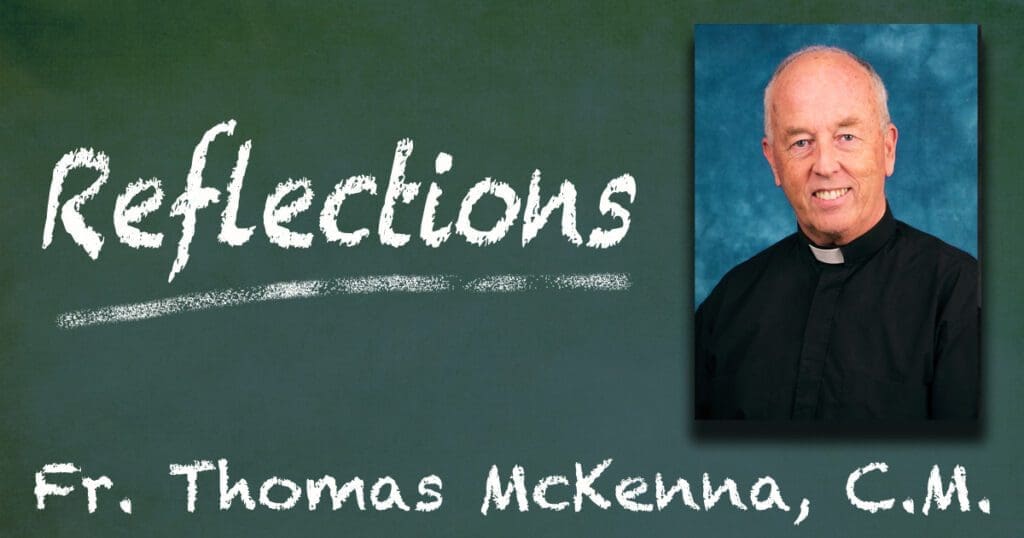Luke’s 19th chapter begins with a story of “two people looking.” There’s Zacchaeus, a man on the alert who hoists himself up in that tree, scanning for what and especially whom he can see. Then there’s Jesus, also looking as he passes through town. He glances up to spot this little man out there on a branch and calls him down. Both these people have their eyes open, poised to take in what — and who — they can see. And each reacts to the other, Zacchaeus coming down and Jesus inviting himself into Zacchaeus’ home.

It’s this mutual recognition which gets at the heart of the story, the story of how it is — and can be — between ourselves and our God.
First there’s Zaccheaus. His horizon is not locked in but rather opened out to the new. The risk he takes of scaling that tree shows him to be a man attentive to things yet unknown. Might he be standing in for you and me as we face our everyday life, and especially, as in our Eucharistic sharing, we take an extra look at the ways in which God might be present in that day-to-day existence?
And then there’s this passerby, Jesus, who as he ambles along is looking not just at humanity in general but at a particular living and breathing human. This is The Lord Jesus as he takes a very personal interest in this one man, this Jesus who focuses in on the particulars of Zachaeus’ home and hearth and family and neighborhood and table setting. Is this not our Lord Jesus taking a one-on-one personal interest in you and me, the Lord not as generically present but as he singles out each of us in our uniqueness: our particular blind spots and foibles as well as our virtues, our generosity and forgiveness.
To enter the story more fully, can you imagine Jesus picking you out of a crowd, acknowledging you by name, and declaring it’s into your home, with both its charms and cracks in the wall, he wants to come?
A first lesson of the Zacchaeus story is this: we are to be on the lookout for what and who is coming down the road, especially for who and what of God is there. And looking not with a preconceived notion of what there is to see, but with an openness to the unexpected, to both what newness and freshness of God is appearing and also to the goodness of God’s people.
The story’s second lesson is the even more important one. You and I are being sought after and picked out. Each of us is the object of love, God’s love. In the Lord’s eyes we’re not part of some overall category, but are particular, endeared individuals. Each of us is that person in the tree, each that wandering lamb searched out by this Good Shepherd.
In one of his conferences, Vincent seconds all this. “Do we serve God in Hope, looking to his promises, confiding in his love, seeking his Kingdom…looking forward to the time when he will appear, when we will see him as he is….” (Vol 3,b; p 332)
And so two people, one looking out and the other looking up. You and me, there on that limb, eyes open for what newness is coming down that road. And then the Lord Jesus, especially as present in all our Eucharists, looking up to spot each one of us, and calling out to us in love so he might move more intimately into our homes and lives.
The Zachaeus episode, a story of two people searching for each other, one looking out to what’s still ahead, and the other looking down, all the way into the depths of our hearts.







0 Comments